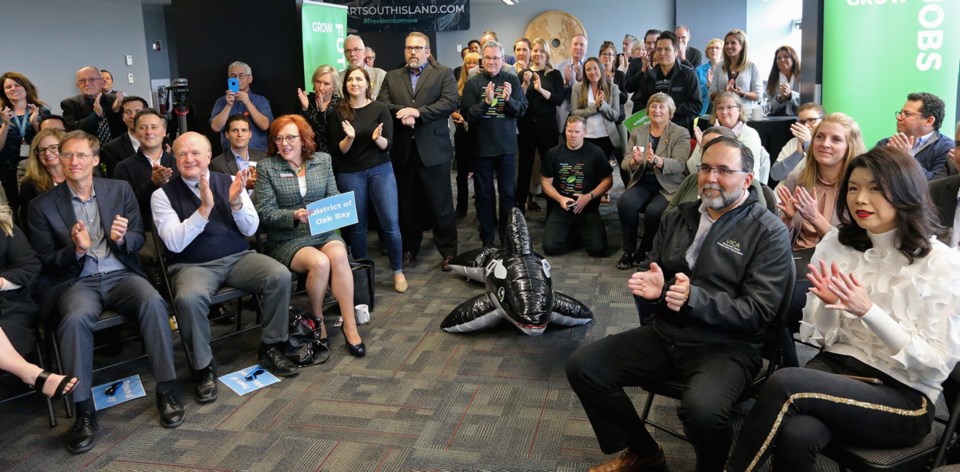The South Island Prosperity Partnership failed to win a major award in a national competition on Tuesday, but is continuing to move forward with innovative ideas to improve communities.
A proposal for Greater Victoria was among 20 shortlisted across Canada for two $10 million prizes in the Smart Cities Challenge. Guelph, Ont. and Bridgewater, N.S., were announced as winners on Tuesday.
Other winners included Montreal at $50 million and Nunavut at $5 million.
Greater Victoria’s submission involved improving local transportation and creating alternatives to using personal vehicles. It included not only existing modes of transportation, but what the city might see in the future, such as electric vehicles and innovative bus routes.
The shortlist was created from 200 applications. Each finalist received $250,000 in federal money last year to develop their idea into a proposal.
Local consultation showed that Greater Victoria’s transportation needs to improve, the Prosperity Project said in a statement.
The group was founded in 2016 to oversee Greater Victoria’s economic development . Its 50-plus members include municipalities, First Nations, post-secondary schools, industry groups, non-profits, and more than 30 employers.
It has a number of initiatives underway.
“We now have the chance to move some of these projects forward based on what we've learned throughout the process,” said Bruce Williams, interim chief executive.
Christina Clarke, project board member and executive director of Songhees Nation, said that a memorandum of understanding has been signed with Camosun College to develop and test an Indigenous-focused transit solution. “We’re working with local Nations and the college to develop some pilot projects with the goal of better connecting their residents and their young people to education and economic opportunities. This is an important issue for our region with 10 First Nations that are often less able to capitalize on our region's strong economy.”



